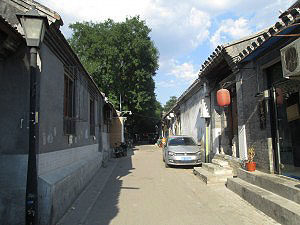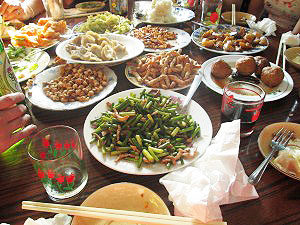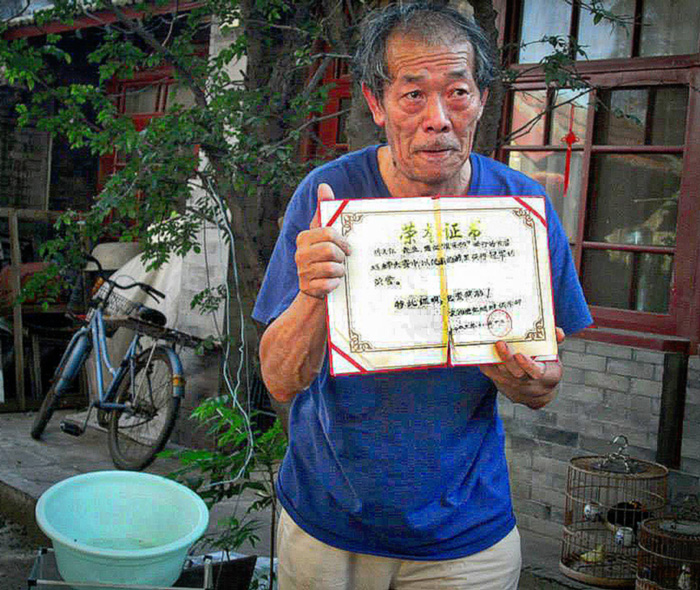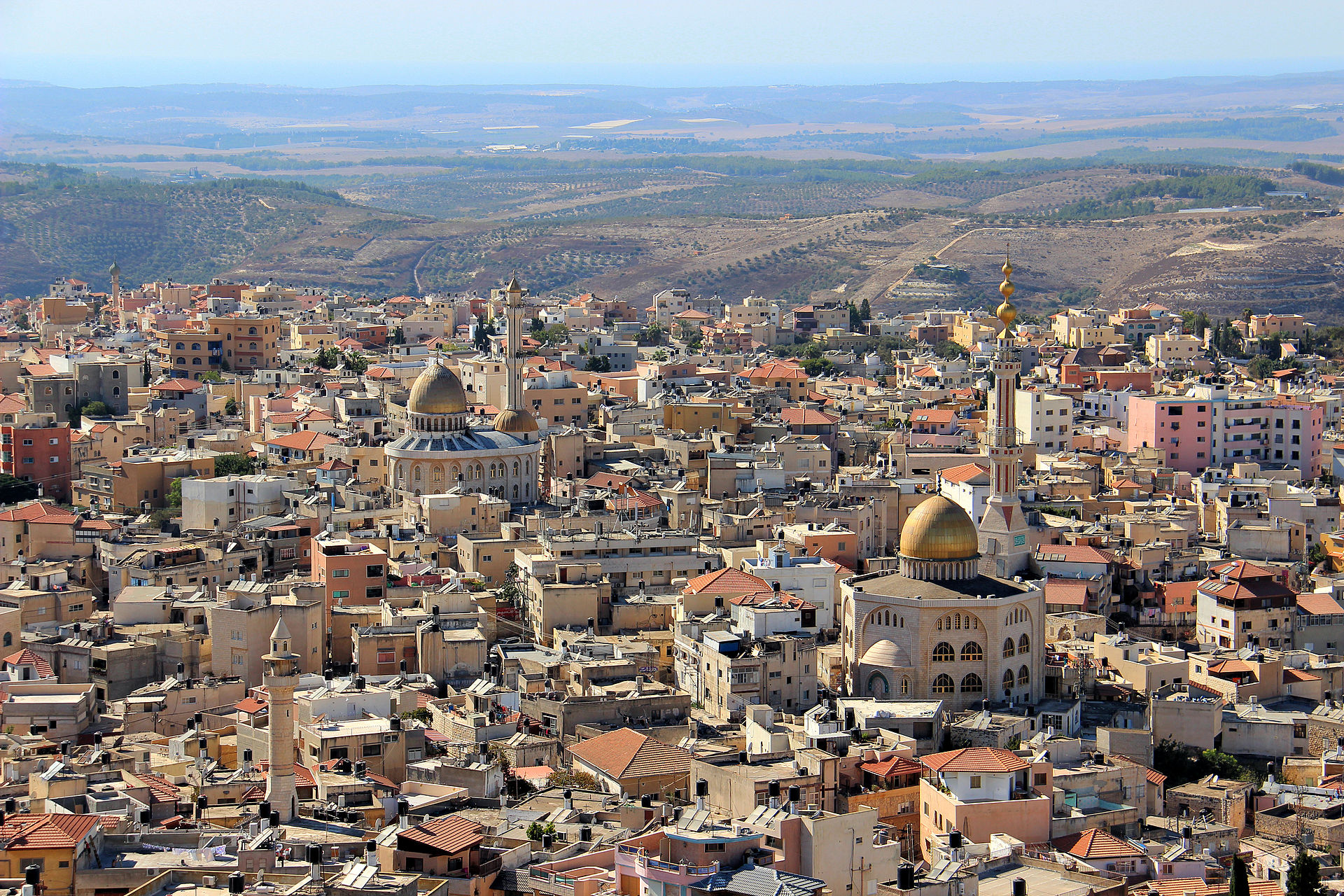By Cheyenne Litt
Published on January 10, 2017
When I discovered that my high school was offering a trip to the Chinese cities of Beijing, Xi’an, and Shanghai, I could not have been more thrilled. I was excited to travel with my best friend and both of our mothers while also joined by other student tour groups from Quebec and California. This was my first trip outside of North America, but hailing from Bright, a small Canadian village with a population of a hundred or so, I already knew a bit about the differences between the city and the country. What would it be like in Beijing, I wondered, one of the world’s most densely populated megacities?

Beijing made me feel small. This was especially the case while visiting the Forbidden City, where I was surrounded by hundreds of visitors packed into small courtyards. Not only was I experiencing a country historically and culturally different from my own, but for the first time in my life, I was also experiencing what it was like to be in such an enormous city. Though I’m usually interested in learning about things unfamiliar to me, I found myself in Beijing looking for small signs of familiarity, any unexpected similarities with my hometown of Bright where there exist no 24/7 convenience stores but a post office that closes at 5 pm on weekdays. I waited for a smile from a stranger or a random act of kindness, something that would remind me that the hectic busy-ness of city life was not all that the historic city of Beijing had to offer.
I found what I was looking for when I visited the hutong area of Beijing. A rickshaw driver took us down narrow streets alive with signs of everyday life, a refreshing scene compared to the gridlock and congestion we saw throughout the other areas of the city. Children ran from building to building, playing a game only they could see. Adults sat on the steps of tiny stores packed to the edge with a fantastic variety of goods, and boisterous mah-jong players gathered around small tables outside. There was a community that appeared perfectly at ease with the summer evening heat. This was the ordinary, everyday life that I had been looking for.
However, as a tourist, I felt like I was watching the scenes still through a kind of a window. I was physically there on the scene, near the people and their lives, but as a white girl from the other side of the world, I remained an outsider unable to interact truly with them. I could not speak Mandarin aside from saying nihao (hello) and xiexie (thank you). I felt deeply self-conscious about being a visible outsider in their neighbourhood given who I was, how I looked, and why I was there. I did not know how they felt about tourists like me poking around in their neighbourhood. I was a tourist brought to this area where these residents — ordinary people — lived and worked. It made me wonder, how did they feel about their lives and their home being put on display for foreign tourists?
A study conducted by tourism researchers showed that the residents and business owners in the hutong area have mixed reactions toward tourists. While business owners generally felt tourism was good for the economy, residents felt differently about the intrusion and disruption. Many residents in this study expressed inconvenience and discomfort during their daily activities due to the presence of tourists and said that their lives were negatively affected by tourism. Had I known this at the time of my visit, I would have felt even more deeply troubled and distant from the people who surrounded me. Were some of them not feeling welcome towards me and my tour group? Were we bothering them? I wish I knew.

Much of this feeling of distance and alienation vanished, though, when my tour group arrived at the home of an older gentleman and his wife. The couple warmly welcomed us and ushered us into a small living space that had barely enough room for our group of twenty-four tourists. As we sat down on the hardwood floor and began to eat the delicious meal that our hosts had prepared for us, our tour guide explained that the “room” we were sitting in was actually the couple’s entire house. Excluding the courtyard where they kept a variety of animals, this room was where they did most of their daily routines—sleeping, eating, and entertaining. The couple opened their entire home to complete strangers. I was in awe of their hospitality.
After the meal we made our way to the courtyard to stretch our legs and meet the animals that lived with our hosts. I assumed that this was just a quick break in our schedule and thought we would move on once everyone was finished eating, so I was pleasantly surprised when the group stayed for a while to listen to our hosts. With the assistance of our tour guide and interpreter, our host told us that he was a well-known cricket fighter and showed off his prize crickets. He showed us the equipment he used for the fights and even a miniature casket for his best fighting cricket that died. He told us stories about the ups and downs of cricket fighting. It was an amazing experience to enjoy dinner and share an evening without being hindered by a language barrier, and it was gratifying to see how much pride they took in the activities they enjoyed doing. They seemed to enjoy the audience and showing us a glimpse into their lives. They did not hesitate to talk to us about their interests. I know that they were getting paid to host us in their home, but the genuine hospitality I sensed did not seem to come with a price tag.
Here, I pause. This visit was organized by a tour company, and doesn’t that mean that many other tourists would have also visited this neighbourhood and this particular couple? The ethics and politics of hospitality are complex especially since monetary compensation was involved here. The hosts were paid for welcoming us into their home, but does that mean the entire experience was disingenuous? Were they just pretending to be enjoying our company?

I sadly do not know either of the hosts’ names, but I do remember the kindness they showed. My brief encounter with their hospitality touched my heart and kindled an interest in learning more about unfamiliar people, places, and practices. This experience made me realize that tourist activities may certainly disrupt local life, but they may not always destroy them. Disruption does not always produce cold, unwelcoming local residents who shun tourists at all cost. Some residents may even enjoy inviting strangers to their homes and sharing highlights of their lives with foreign tourists. I will never know for sure how much of the hosts’ hospitality was genuine, but I do know that my appreciation was. I may be a white girl from the Canadian countryside, but I would like to think that I could recognize genuine hospitality and serendipitous human connection—even in the ultra-mega-urban city of Beijing.
P.S. If you happen to know the names and contact information of the hosts who appear in this story, please let me know!
Works Cited
- Gauthier, David J. 2007. “Levinas and the Politics of Hospitality.” History of Political Thought, 28 (1): 158-180.
- Huimin, Gu and Chris Ryan. 2012. “Tourism destination evolution: A comparative study of shi cha hai beijing hutong businesses’ and residents’ attitudes.“ Journal of Sustainable Tourism, 20 (1): 23-40.
- Zacharias, John, Zhe Sun, Luis Chuang, and Fengchen Lee. 2015. “The hutong urban development model compared with contemporary suburban development in Beijing.” Habitat International 49: 260-265.
 Cheyenne Litt is a third-year student at the University of Toronto Scarborough, pursuing a double major in Global Asia Studies and Human Geography. Her move to Scarborough two years ago from Bright, the small village in Southwestern Ontario where she grew up, has brought many changes and opportunities into her life. She enjoys exploring Scarborough and downtown Toronto both on her own and with friends. The majority of her time, however, is spent reading history books, and she is specifically interested in the evolving relations between North and South Korea, as well as the history of the First Nations people of Canada.
Cheyenne Litt is a third-year student at the University of Toronto Scarborough, pursuing a double major in Global Asia Studies and Human Geography. Her move to Scarborough two years ago from Bright, the small village in Southwestern Ontario where she grew up, has brought many changes and opportunities into her life. She enjoys exploring Scarborough and downtown Toronto both on her own and with friends. The majority of her time, however, is spent reading history books, and she is specifically interested in the evolving relations between North and South Korea, as well as the history of the First Nations people of Canada.


